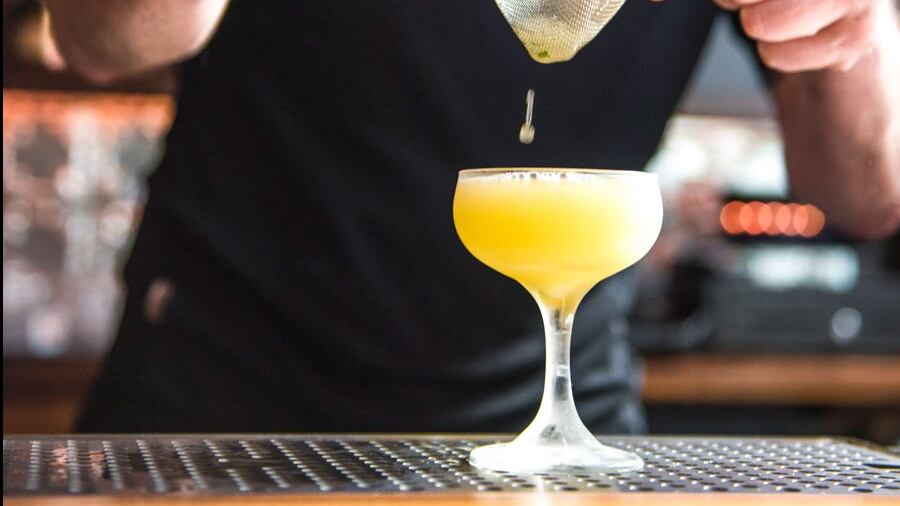This afternoon, the Washington State Liquor and Cannabis Board temporarily legalized the sale of cocktails to go, a move that bars and restaurants in Oregon desperately want here.
"A good to-go cocktail program can provide the type of margin our small business operators need to survive," says Jason Brandt, president and CEO of the Oregon Restaurant & Lodging Association.
Currently, Oregon law requires that "alcoholic beverages sold under a full on-premises sales license must be consumed on the licensed premises."
As The Oregonian reported earlier, California and Idaho already allow bars and restaurants to sell takeout cocktails.
The new Washington rules require licensees to sell full meals in conjunction with the cocktails and require the drinks to be sold in a solid, sealed container—no plastic or plastic foam cups.
Portland restaurant and bar owners are eager to do the same. They would mix drinks, seal the containers in solid vessel, such as Mason jars, and label the contents and alcoholic content of the drink.
Matt Davidson, owner of the Pearl District cocktail bar Botanist, notes that during the current state of emergency, the Oregon Liquor Control Commission has allowed Oregon distillers to sell directly to consumers, including mixed drinks in factory sealed containers.
Davidson says prohibiting bars and restaurants from selling cocktails when distillers are allowed to do so is unfair.
"There's a huge double standard there," he says.
Although the distilled spirits industry is enjoying record sales in Oregon during the COVID-19 pandemic, Paul Cosgrove, a lobbyist for the industry, says big distillers support the position of bars and restaurants.
"Reopening the economy will take a long, long time," Cosgrove says. "A lot of bars and restaurants aren't going to make it without some help. That's the reason to move forward with to-go cocktails."
OLCC spokesman Mark Pettinger says his agency has been as flexible as possible during the pandemic, allowing licensees leeway on liability insurance, suspending the requirement that grocers redeem returnable cans and bottles, and allowing distillers to make home deliveries. But on cocktails to go, Pettinger says the agency does not have discretion.
"One of the challenges is the statutory handcuffs," Pettinger says. "We don't have the option to just not enforce the law."
Gov. Kate Brown has issued executive orders that affected other long-standing laws, such as the prohibition of self-service gas in most counties, but Pettinger notes that was a matter of social distancing and public health, not economics.
Brandt says he hopes the Legislature will consider changing the law in a special session widely expected to follow the May 20 revenue forecast.
But for bar and restaurant owners, that's a long way off. Davidson, the owner of Botanist, put together a petition with 340 signatures that he's sent to Brown, asking her to throw his industry a lifeline.
"We really need help," he says.

